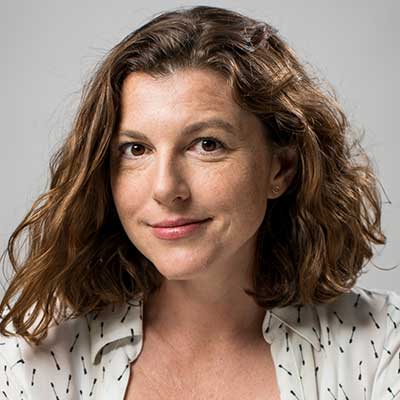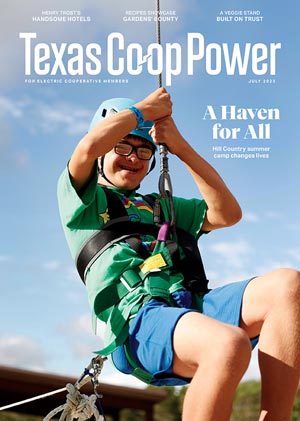It was 44 years ago when Dr. Chris Plauche wrote a letter clearing one of her pediatric patients to take part in summer camp. The child wanted to ride a horse that summer.
But Plauche was devastated to learn that her patient was denied entry anyway. So she, along with other doctors and health care professionals, took 32 children with disabilities for a weekend camp experience themselves.
“It was 1979, so it was before the Americans with Disabilities Act and nothing was accessible and it rained all weekend,” Brandon Briery says. “But they pushed wheelchairs through the mud and rode horses and canoed in the rain and had the time of their lives.”
The physicians knew that couldn’t be a one-time experience.
More than four decades later, participants are still having the time of their lives at Camp CAMP—Children’s Association for Maximum Potential—nestled along the Guadalupe River in Center Point. It’s a special kind of summer camp that changes lives. Located on a sprawling property about 55 miles northwest of San Antonio, Camp CAMP is a haven for visitors of all abilities, offering them the opportunity to make lifelong friendships, gain independence and have fun. Last year it served more than 1,400 children and adults with weeklong summer camp sessions, respite weekends for caregivers and family retreats.
Nobody Is Invisible
It’s a warm cloudless morning, and parents are dropping off their kids for a CAMP weekend. After the COVID tests and medical briefings, each camper is paired with a counselor and assigned a cabin.
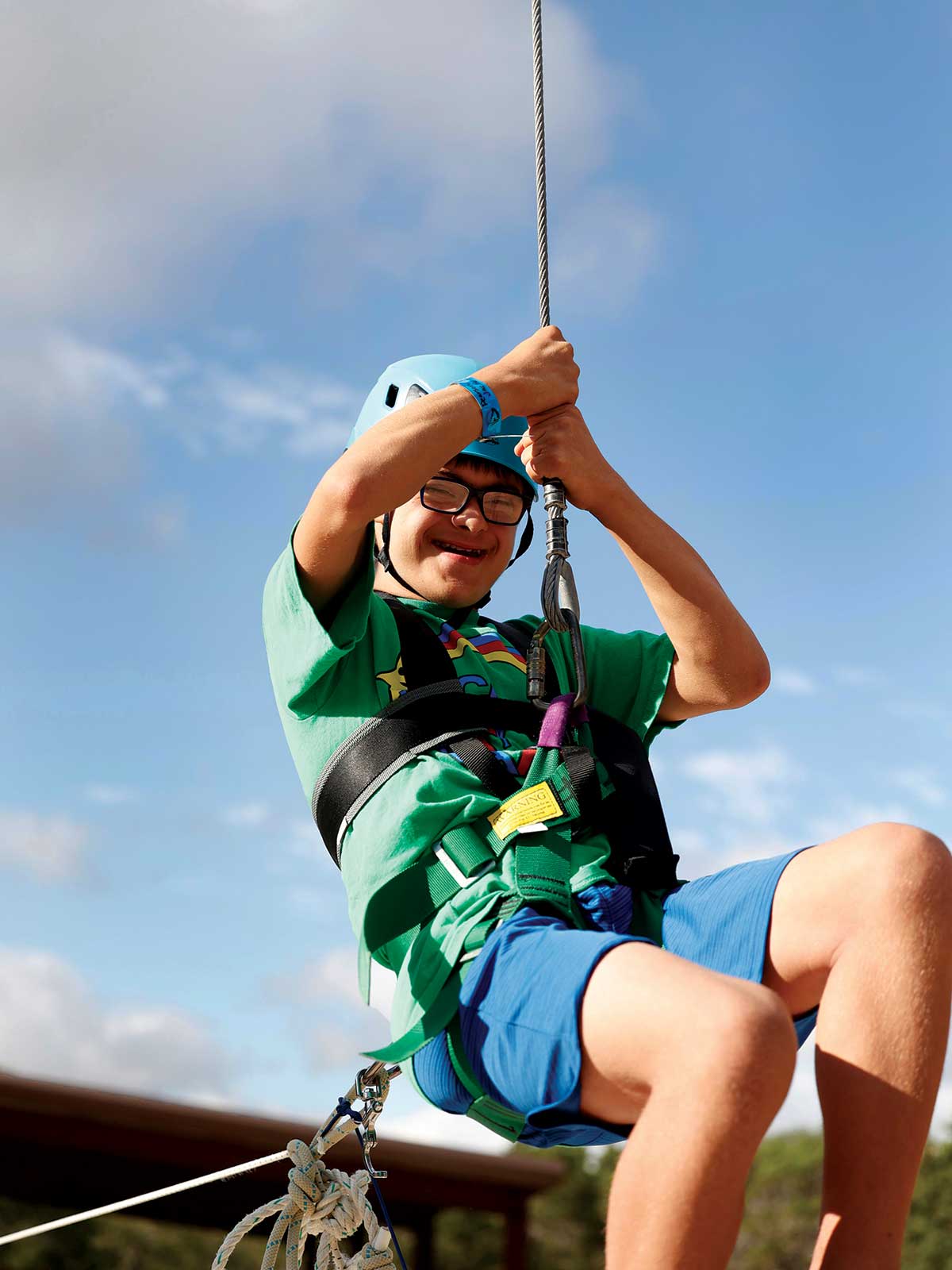
Jacob enjoys the big swing at Camp CAMP—Children’s Association for Maximum Potential.
Julia Robinson
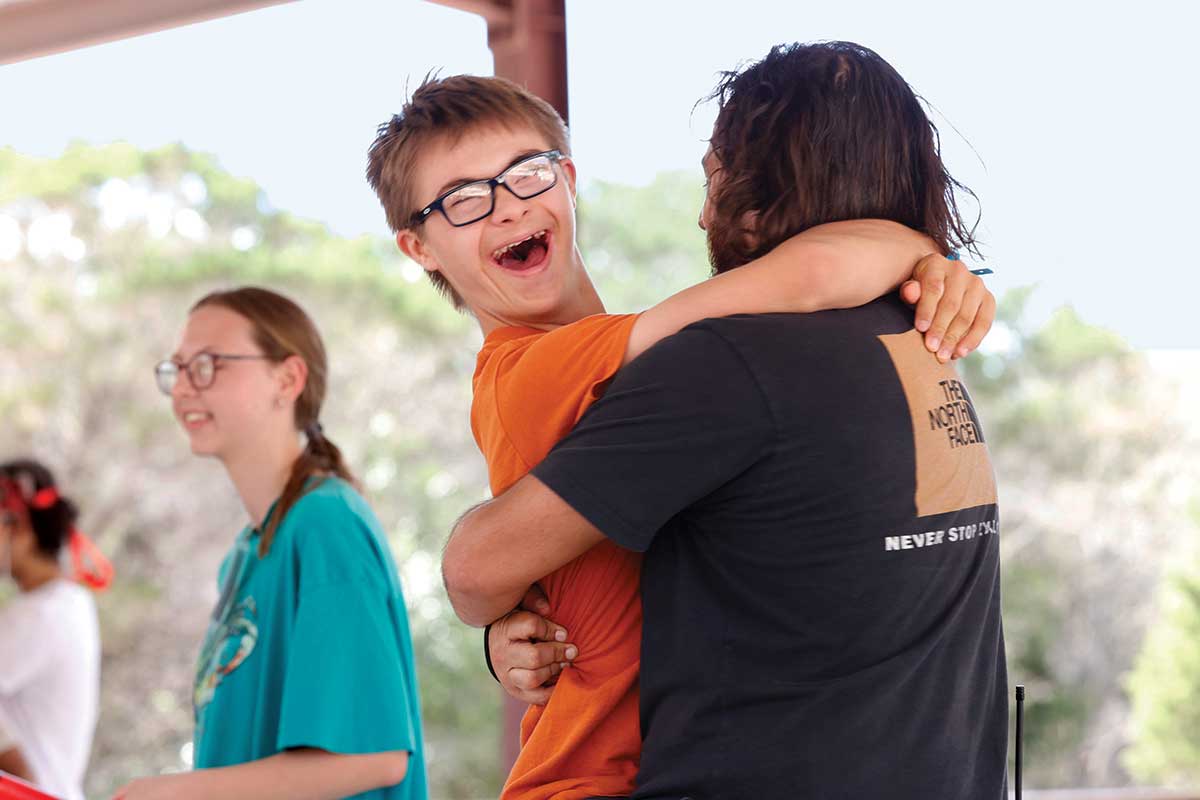
At Camp CAMP in Center Point, campers and counselors bond over activities that include archery, field sports, outdoor cooking and canoeing.
Julia Robinson
Hugs and high-fives abound because many campers and counselors know each other already. One camper-counselor pair plays basketball; others bring out coloring books. Over in the “swing-zebo,” several campers sway in the circle of porch swings, a popular spot for those with autism or other sensory processing disorders for whom swinging is a soothing activity.
Camp CAMP was designed to be fully accessible, with wheelchair ramps, accommodating bathrooms and specialized equipment that allow campers with physical disabilities to fully participate. During the summer, more than 70 counselors, many of whom are college students or recent graduates, receive extensive training to work with the campers. More than 100 health care staff are on-site to administer medications, provide overnight care and ensure the safety of participants. Dedicated volunteers return year after year to help as well.
Gia Barrera, a 16-year-old assistant cabin counselor, started out as one of those volunteers and made the transition to full-time staff last summer. She is sitting with Erin, a camper in her early 20s who is nonverbal but communicates with smiles, vocalizations and touch. Erin rocks back and forth as they eat lunch and plan out the afternoon.
“Camp is for the camper,” Barrera says. “They have complete autonomy over any decision they want to make.” For some, that means no formal activities at all, if that’s what they desire.
One of Barrera’s campers last summer wanted to make friendship bracelets all day. Another camper who loves machines spent hours with her in the laundry room, watching the spin cycle. “Working here gives you a greater understanding of everything,” she says. “It puts a lot of things into perspective for you. I love all the love here.”
CAMP’s mission is simple: to strengthen and inspire individuals with disabilities and those who care for them through recreation education. Campers are 5–55 years old with mild to severe medical conditions, including physical, intellectual and developmental disabilities. Some campers require breathing assistance, others have Down syndrome, cerebral palsy or autism spectrum disorder. But at CAMP, everyone is simply a camper.
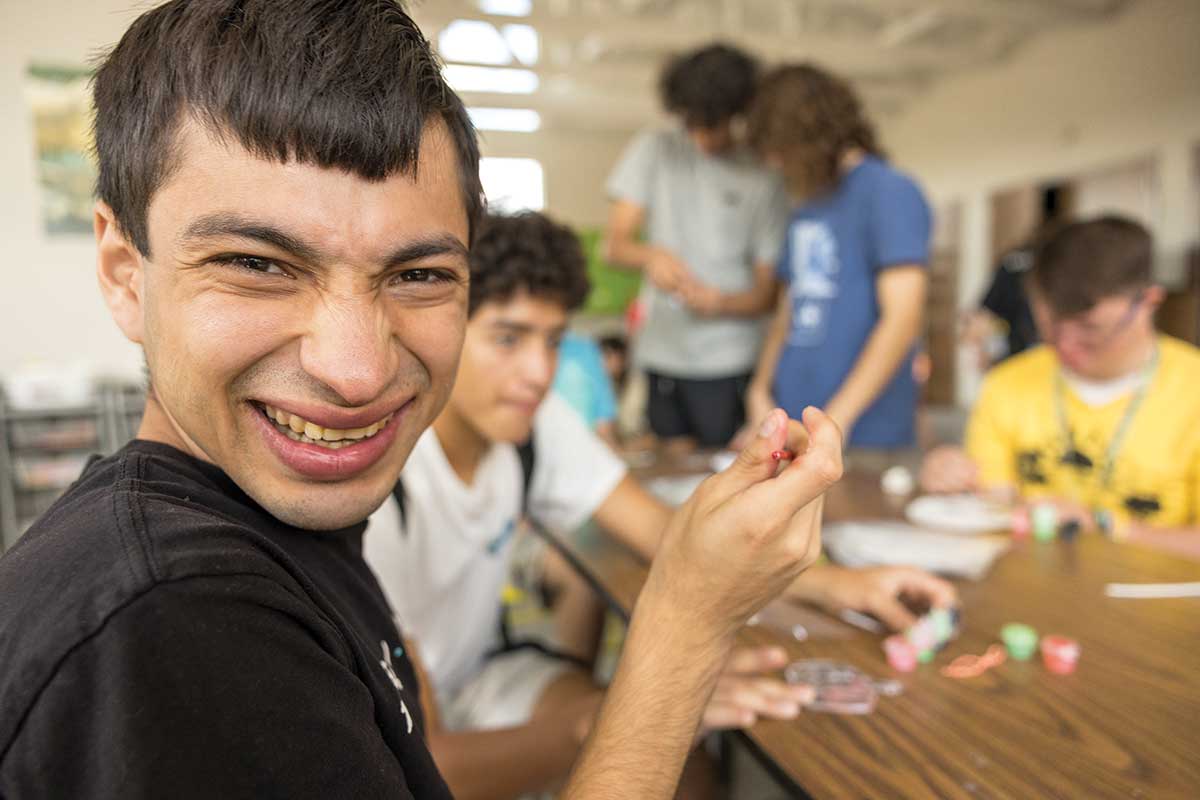
Julia Robinson
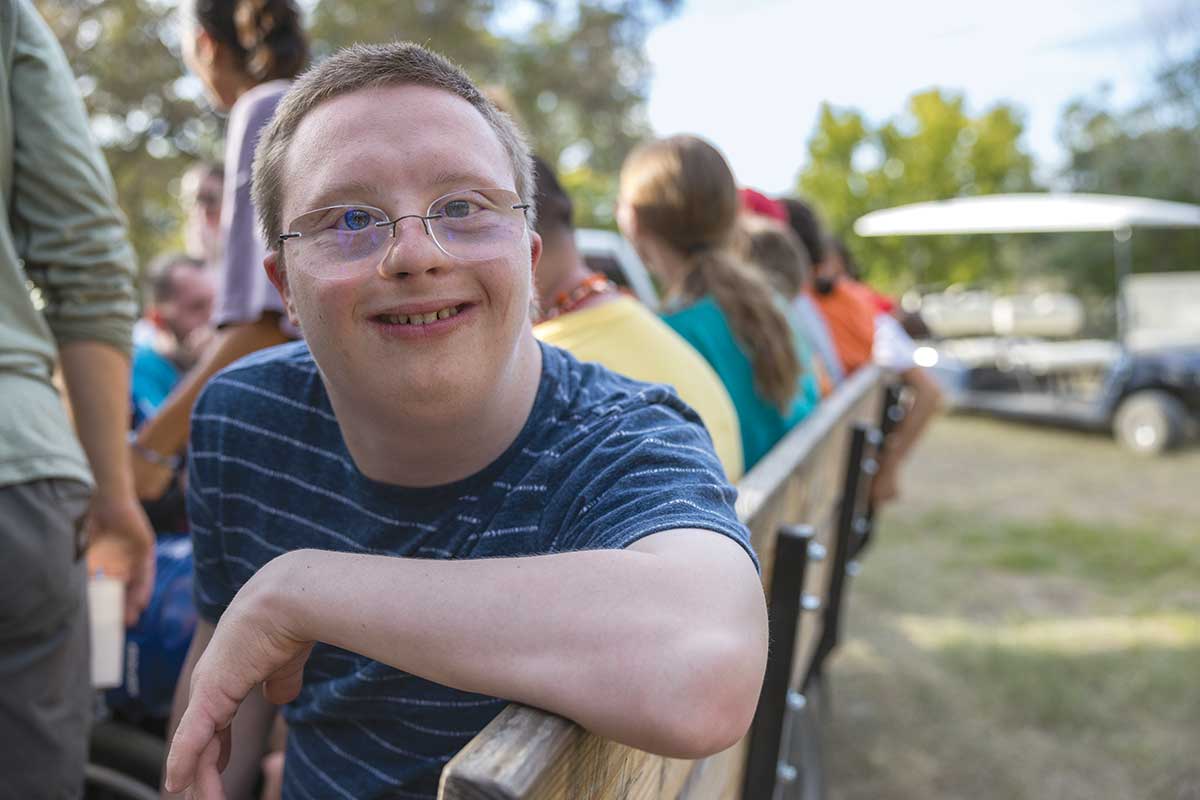
Julia Robinson
Every activity, including swimming and horseback riding, is adaptable to each person’s needs so they all can have fun. Crafts, field sports, canoeing, outdoor cooking, an evening dance party and the big swing, which suspends campers in a harness attached to utility poles, offer a variety of adventures.
First up today is archery, where Michael Maffei, assistant camp director, greets campers as they line wooden bleachers. Maffei first attended as a camper back in 2003, so he knows how special the place can be.
He spent his early working life in the private sector but felt something was missing when he rejoined CAMP as an employee. “In the second hour of being in a full-time role here, I helped a young man named Soren shoot a bullseye,” Maffei says. “He was so excited he just vibrated like a teakettle that was about to erupt. In that moment, I had more fulfillment and job satisfaction in my second hour at camp than in the four previous years.”
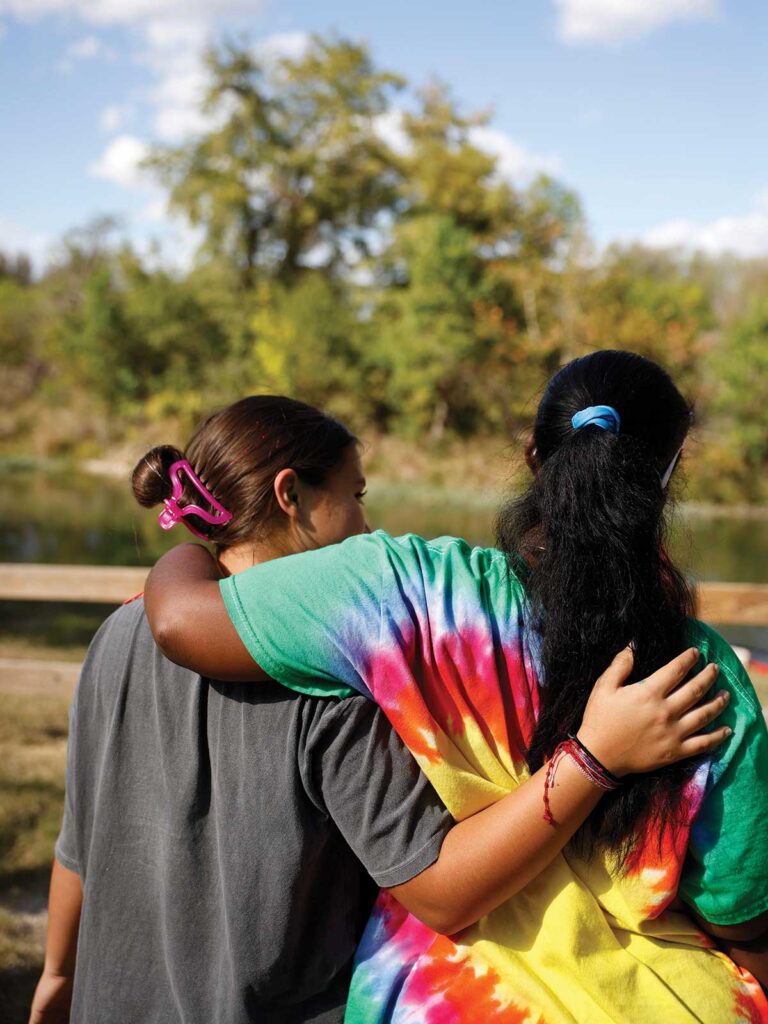
Julia Robinson
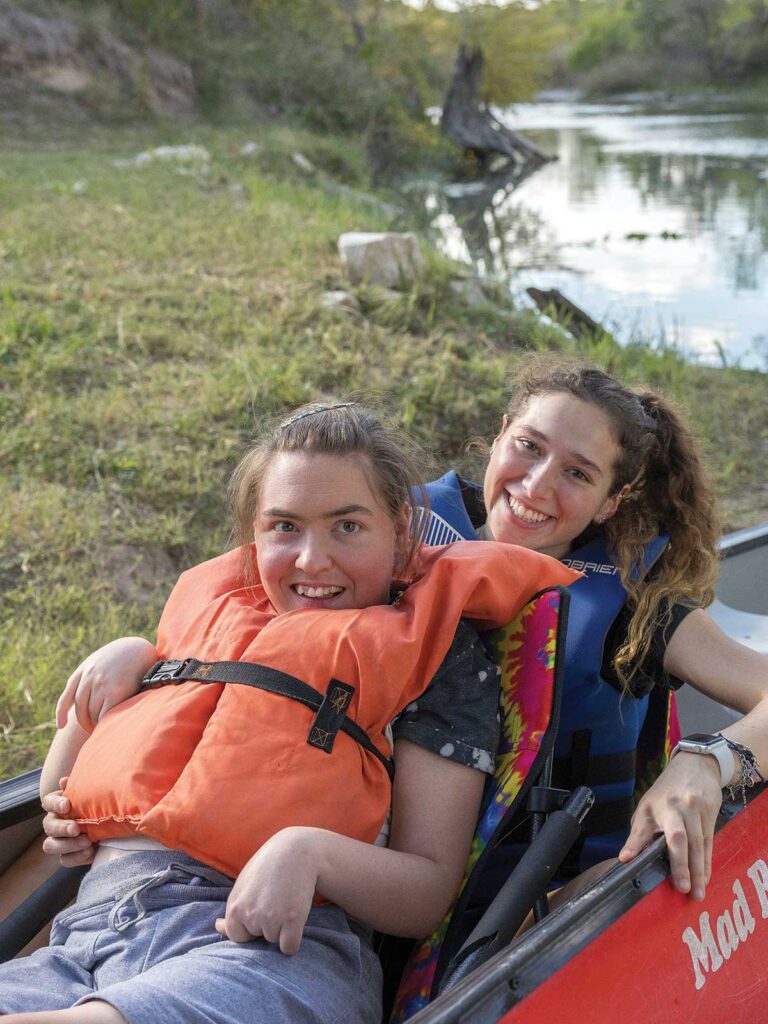
Julia Robinson
Down at the canoe launch, staff members gently place Cassie into a supportive chair cradled by one of her counselors. She is unable to use her limbs and is nonverbal, but it’s clear she loves being on the water.
As the boat is launched into the Guadalupe River, a relaxed smile spreads across her face. Two counselors paddle her downstream and back again—a simple journey that most people would take for granted.
“There are so many times out there in the cold, cruel world that the disabled either get overlooked, purposefully left out, unintentionally left out or they’re just invisible,” says Briery, CAMP’s chief program officer. “CAMP isn’t about the buildings, it’s not even about the activities.
It’s about building relationships, building community and bringing people together.”
Dignity in a Safe Place
For many campers, CAMP is a life-changing experience where they develop a sense of independence. For parents, CAMP provides peace of mind knowing their child is in a safe and supportive environment being cared for by trained professionals. Kristen Reid says sending her son was an easy decision.
“As soon as you drive in and you get out, everyone’s so friendly, everyone’s so welcoming,” Reid says. “They know what they’re doing, and they love these children.”
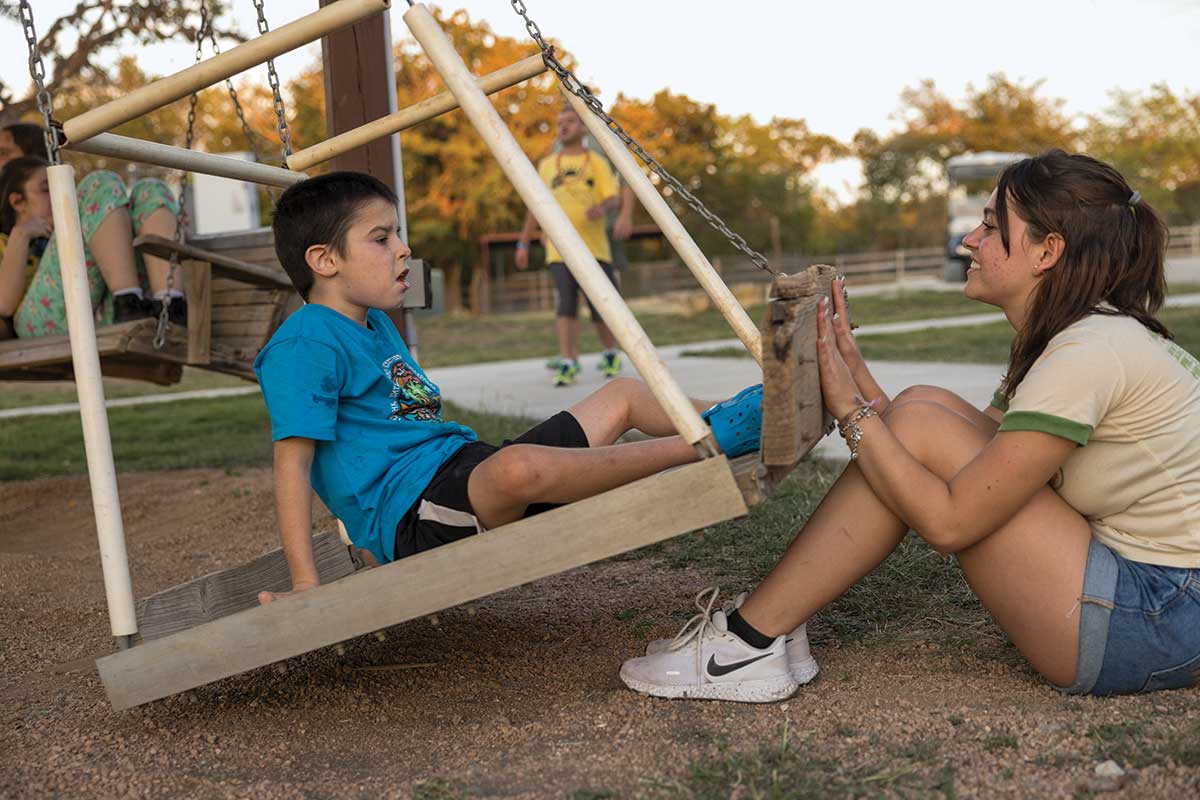
Julia Robinson
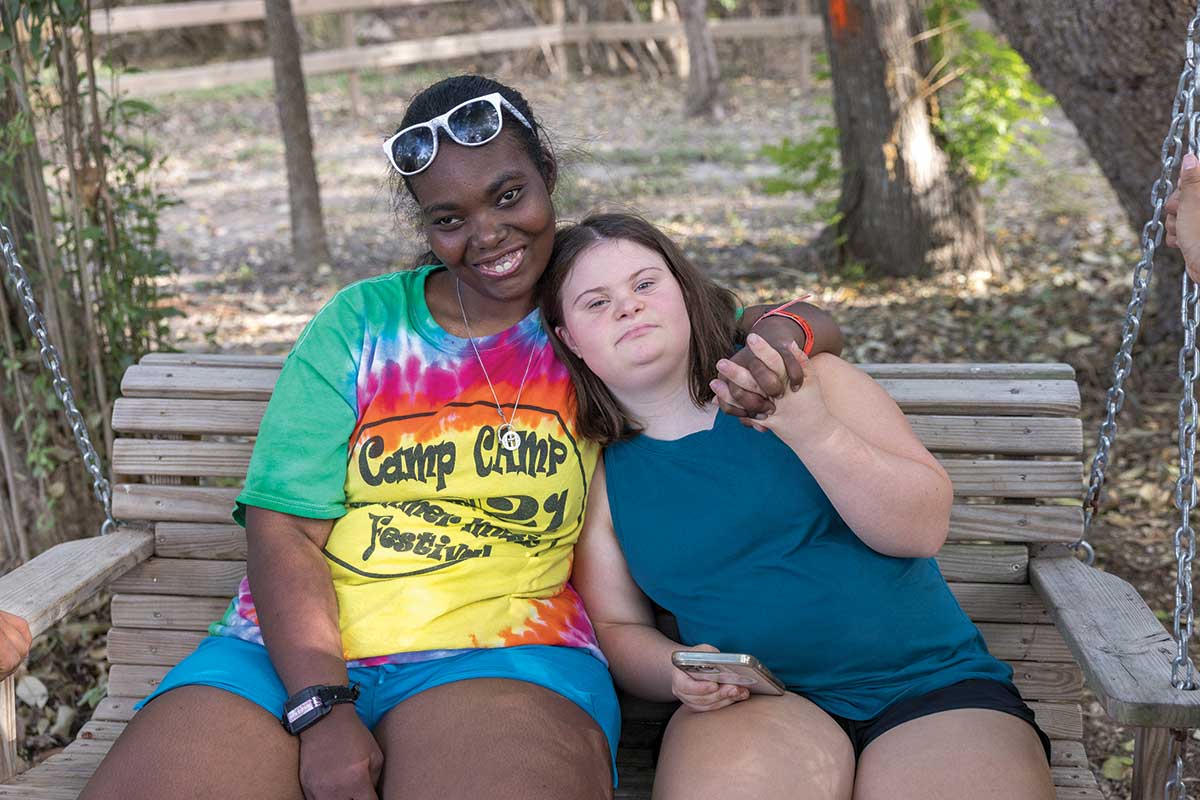
Savannah, left, and Audrey share a moment on a swing.
Julia Robinson
At a fall retreat, she got to spend a weekend at Camp CAMP with her whole family. She shared a cabin with Payton, 9; her husband; and 6-year-old daughter.
Reid rode a horse with Payton, who is nonverbal. They share a passion for the animals, and the experience was unforgettable.
“Not only could I see it with his hand movements, I could hear it with the sound that he was making … I could feel he was shaking with excitement,” Reid says. “For me to be there and actually see and feel it for myself was a really, really touching moment for me.”
The retreat also connected the Reids to other families with similar needs. “And then you can kind of bounce ideas off each other or sometimes just vent to each other when you’re having a bad day and you’ve spent three hours on the phone with insurance,” Reid says.
That community and that belonging are exactly what Briery hopes CAMP provides.
“Some days are super long and hard in different ways, helping to manage what can be challenging behaviors,” he says. “It’s all worth it in the end because we create this safe space where people are treated with dignity, and they’re respected, and they know that they belong.”
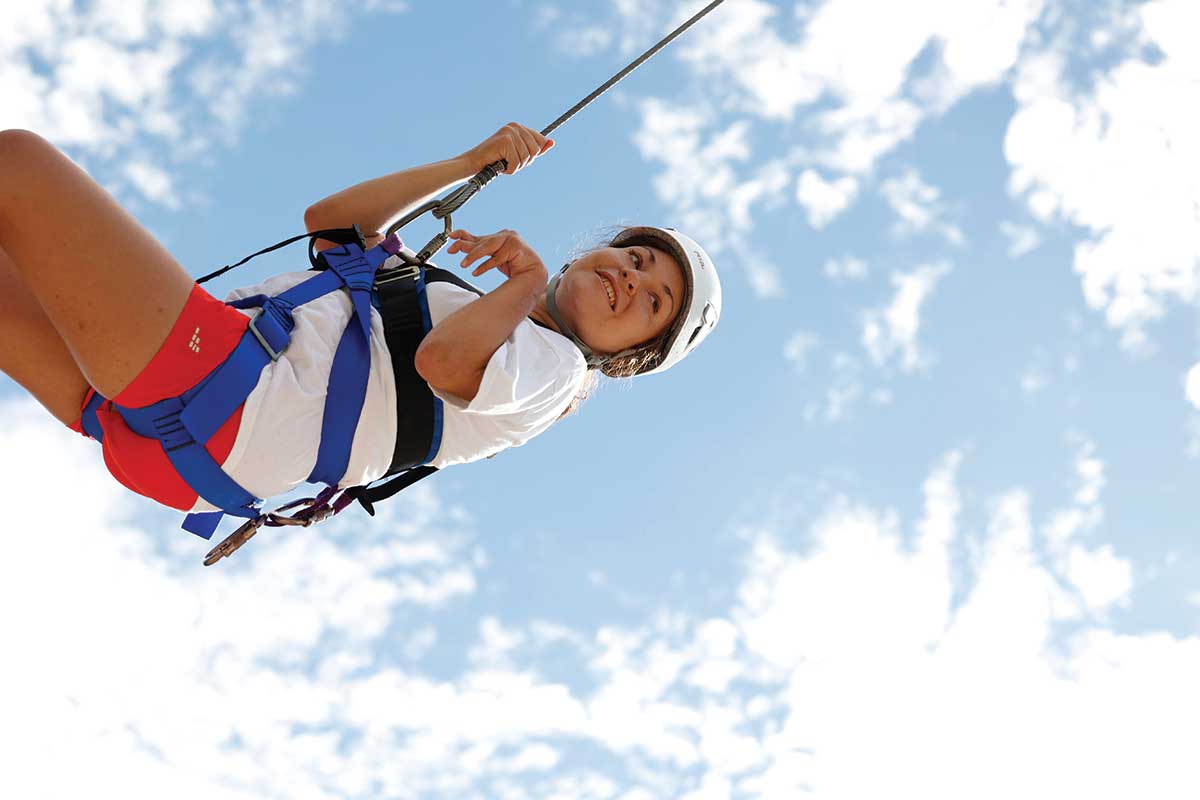
Kristi takes her turn on the big swing.
Julia Robinson
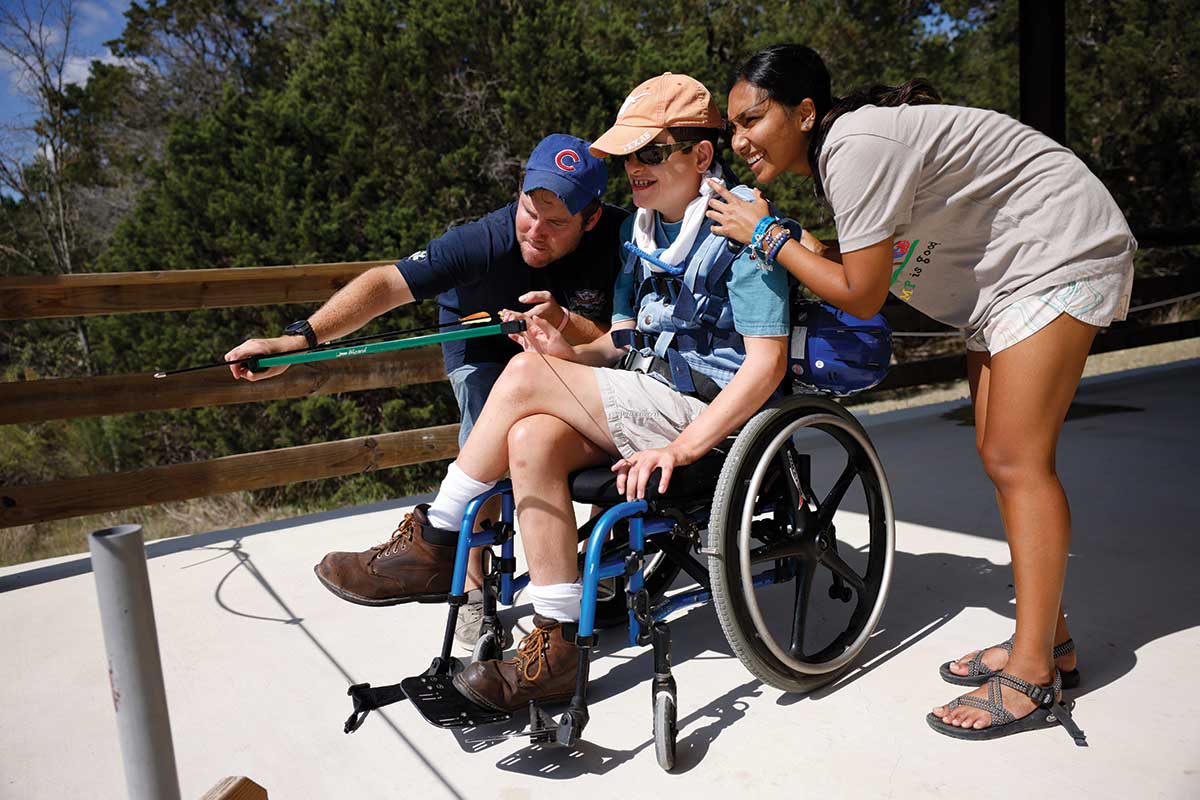
Caleb readies his archery shot with help from Michael Maffei and Samika Iyer.
Julia Robinson
